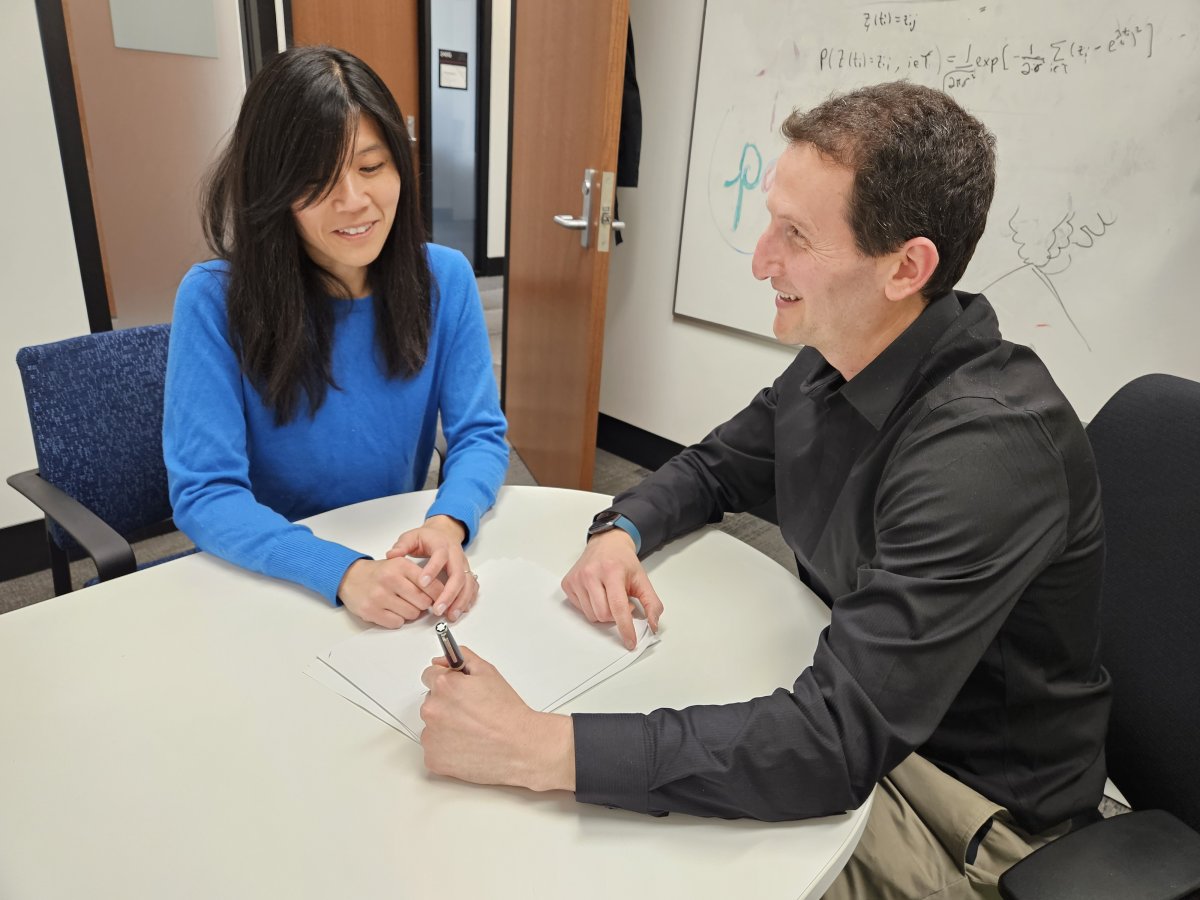Dr. Kevin Leder: A Journey to Building a Legacy

For Industrial and Systems Engineering (ISyE) professor Kevin Leder, the last few semesters have been filled with successes and achievements. He is actively engaged in the design and implementation of precision drug treatments for cancer patients thanks to the support of a recently obtained National Science Foundation (NSF) grant; he is playing a pivotal role in the creation of the new Therapy Modeling and Design Center within the College of Science and Engineering; and he will soon take on the role of Director of Graduate Studies in the department. These accomplishments mark the culmination of Leder’s twelve-year journey within the department. Having recently been promoted to the rank of full professor, Leder is enthusiastic about leveraging his achievements in research, teaching, and service to shape an even brighter future at the University of Minnesota (UMN).
Leder earned his Ph.D. in Applied Mathematics from Brown University in 2008, with a focus on stochastic systems. He was fascinated by the potential to understand diverse systems – from grocery store queues to cellular processes – by capturing the probabilities they have of changing. His dissertation focused on designing and analyzing algorithms for simulating the evolution of such systems, with the goal of estimating the likelihood of rare events. During this period, he also met his future wife, Jasmine Foo, who has become one of his closest research collaborators.
Post-graduation, Leder continued his exploration of rare event simulation algorithms during a postdoctoral stay at Columbia University. His work encompassed designing and analyzing algorithms for networks of queues, among other subjects. While Leder cherished this research, he also saw a chance to blend his expertise with his passion for evolutionary biology. He joined a research group at the Memorial Sloan Kettering Cancer Center, which eventually relocated to Harvard School of Public Health, where he delved into evolutionary models of cancer. During this time, he investigated drug resistance in leukemia, cancer initiation, cell plasticity, driver mutations, and optimal radiotherapy schedules. This experience profoundly reshaped his research outlook, compelling him to harness the power of mathematics to understand and fight cancer.
In 2011, Foo and Leder both assumed assistant professor roles at the University of Minnesota: Foo in the mathematics department and Leder in the newly transformed independent department, ISyE. Leder was part of the small cohort of faculty in the department at the time, and played a pivotal role in launching the program. Consequently, he taught a diverse array of courses at undergraduate, master’s, and doctoral levels. Leder is now poised to further burgeon as he assumes the role of Director of Graduate Studies in the department starting in January 2024.
One of Leder’s greatest joys is forging connections and collaborating on interesting problems. Since joining UMN, he has worked alongside faculty from various disciplines including the medical school, statistics, mathematics, and ISyE. Leder is particularly proud of the body of work they have developed on spatial models of cancer evolution. In a collection of seven papers, they have established fundamental theoretical results on this topic, as well as applied their theory to answer questions such as how age affects treatment modalities for head and neck cancer patients. Leder has recently become interested in the analysis of in vitro drug screen data, and was recently awarded an NSF grant in collaboration with Foo and ISyE Professor Shuzhong Zhang to solve inverse problems that arise when analyzing the data from drug screens.
An exciting new initiative Leder engages in is the creation of the Therapy Modeling and Design Center (TMDC), a joint initiative of the College of Science and Engineering (CSE) and the medical school at UMN. This center will be headed by Foo and Biomedical Engineering professor David Odde. Of the center, Foo says, “The mission of the TMDC is to help propel the development of new cancer therapies, through the innovative use of mathematical and computational models of disease progression and therapy response. Leder’s expertise in knowledge- and data- driven modeling approaches, along with his experience in cancer biology and therapy optimization, will be critical in our work.” Leder is looking forward to the challenge and to his new responsibilities as an Associate Director of the Center. He envisions many ways of employing mathematical modeling to facilitate the design of cancer treatments and clinical trials, aiming to enhance success rates. Leder’s involvement in the center illustrates his commitment to research that positively impacts the world.
This fall, Leder will embark on his inaugural year as a full Professor in the ISyE department. Leder’s positive influence on the department and his contributions in advancing the development of sophisticated analytical tools for battling cancer have already left an indelible mark. His growth at the University of Minnesota closely mirrors that of the department since 2011, and his contributions are bound to solidify his legacy.